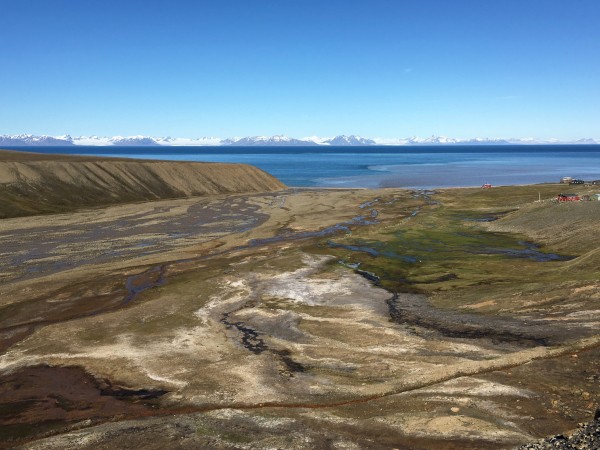Emerging role of wetland methane emissions in driving 21st century climate change
Using climate and vegetation models, researchers and predict that if humans adopt the strict climate mitigation strategies under Representative Concentration Pathway (RCP) 2.6, wetland methane (CH4) emissions may still overtake anthropogenic methane emissions during the mid-21st century due to climate change-induced increases in the extent of boreal wetlands and in temperature-driven tropical methane emissions, highlighting the need to consider wetland methane feedbacks to climate forcing in mitigation policies.
"Wetland CH4 feedback was assumed to be muted in the future climate scenarios in previous climate projection. We use climate and vegetation models to provide a comprehensive assessment and find that climate change could cause shifting dominances of global climate forcing from anthropogenic to wetland CH4 emissions during the 21st century. This highlights the impact of wetland CH4 feedback on global warming.” said Dr. Zhen Zhang, lead author of this study at the Department of Geographical Sciences, University of Maryland and Swiss Federal Research Institute WSL. The study has been recently accepted for publication in the Proceedings of the National Academy of Sciences.
“Because of their large surface area and the amount of carbon stored in flooded soils, wetlands represent a big unknown in terms of their greenhouse gas emissions with climate change” says Dr. Ben Poulter at the NASA Goddard Space Flight Center, “this study goes a long way in understanding the wetland feedback on climate change and will be useful for establishing new monitoring and measurement opportunities in boreal and tropical wetlands”
This study highlights the need to mitigate this additional CH4 from wetlands for limiting global warming to < 2°C and emphasize the need for the policy-relevant temperature targets to incorporate assessment of feedbacks from terrestrial and oceanic system for both CO2 and non-CO2 gases. The climate forcing signals from wetland CH4 feedbacks will exceed anthropogenic emissions under RCP 2.6, the stringent climate mitigation policies that meet the 2°C target in IPCC AR5 future projection. In contrast, under the ‘worst-case’ climate projection RCP 8.5, with no climate mitigation, anthropogenic-driven climatic forcing dominates CH4 radiative forcing throughout the 21st century, resulting in an ~ 0.12±0.01 °C increase in global mean temperature.
Considering the important role of wetland services and functions in regulating flood control, biodiversity conservation, and CO2 sinks in global environments, converting wetlands into other land cover types is not a good option for mitigation and thus this wetland CH4 feedback is not reversible in short future. Substantial efforts in the development of mitigating the CH4 emissions from the expansion of agriculture and reduction in fossil fuel-related emissions should be considered and accelerated in climate policy aiming at the 2°C target.
Published on Tue, 08/22/2017 - 15:14


